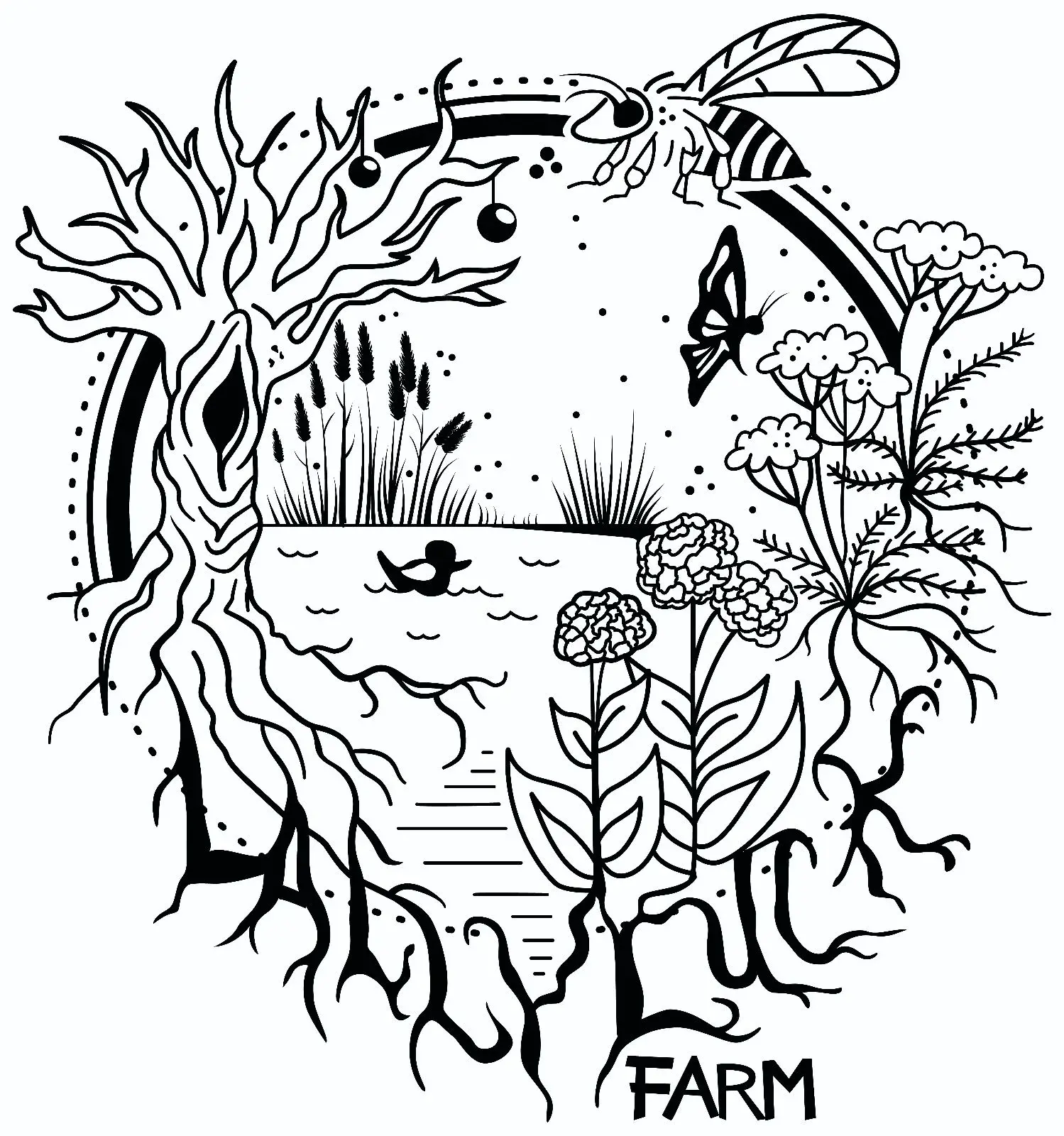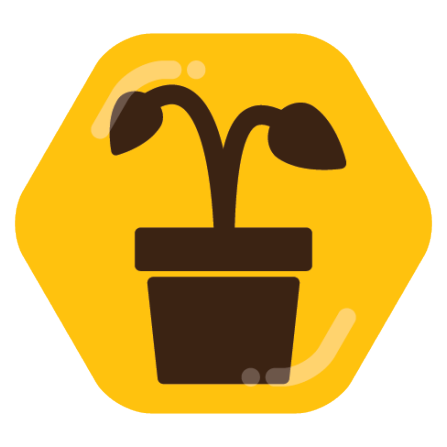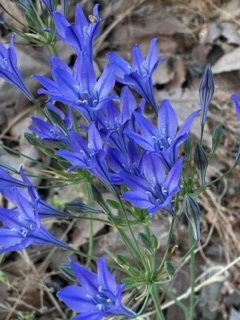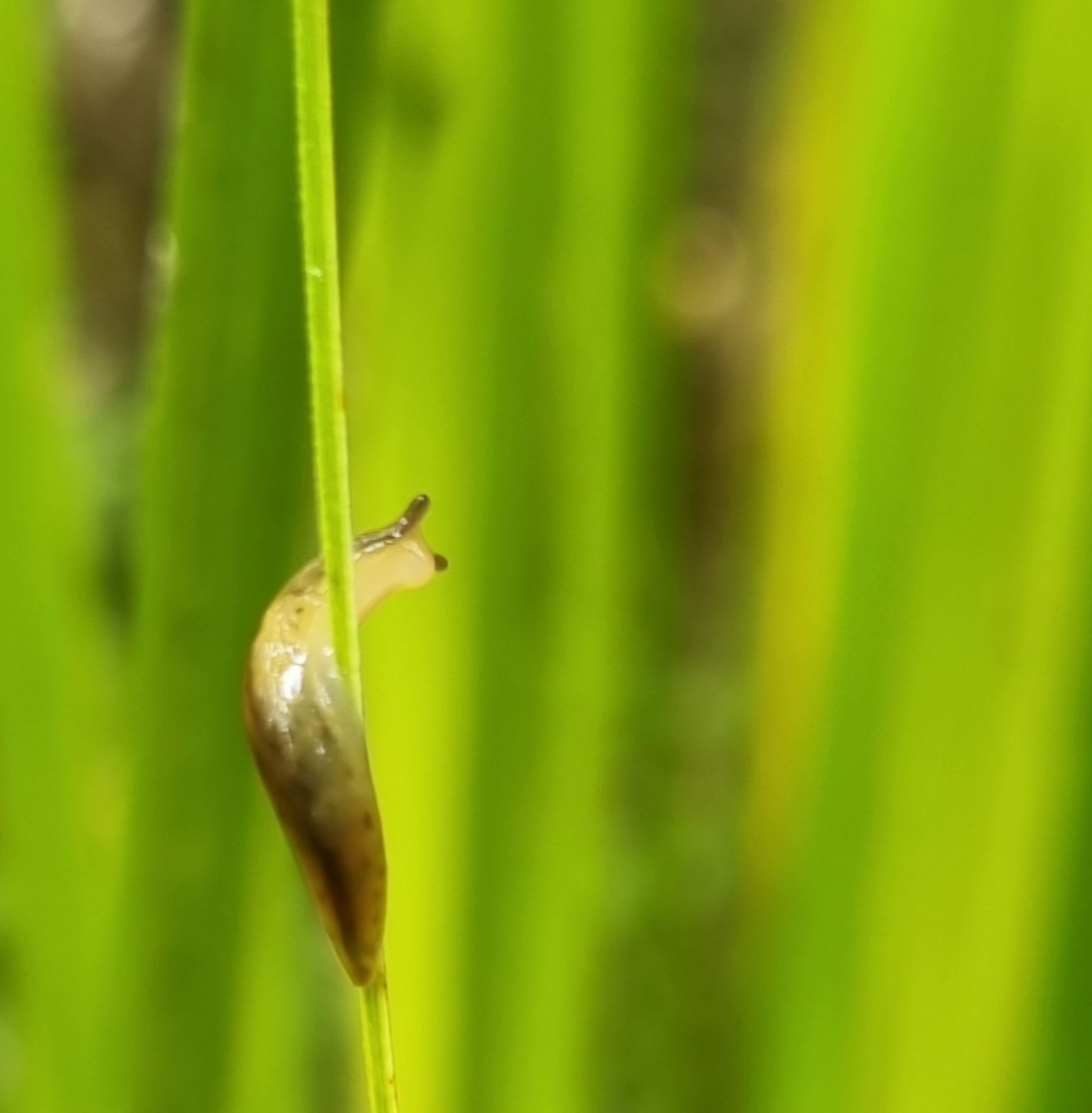This past Tuesday I took our daughter to help organize the seed library, and she was floored by the opportunity to pull apart the seeds from a giant sunflower (she’s 4.5 months old). We swapped and categorized a bunch of plants, from annual flowers to veggies and native perennials. I took home some loofah seeds and won’t lie - I’m pretty excited to grow them this year.
We’re getting snow today so I’ve been continuing to split and store seeds for our own purposes, with an extra envelope of each to bring to the library. There’s a grow tent in the garage that’s probably going to be the overflow space for some of our hardier indoor plants so I can devote the grow closet in our hallway to seedlings and starts in the next week.
What’s growing on with you all?
Loofah/luffa is so fun! I’ve posted pictures of mine here before, but I recently did a writeup of my experience growing them on the little personal website I’ve been making for fun - https://xylemphloem.xyz/blog/luffa/
This week I brought in a pot from outside to plant some pothos cuttings, forgetting it was the pot I had grown dill in last year! So now I have some baby dill seedlings popping up alongside my pothos!
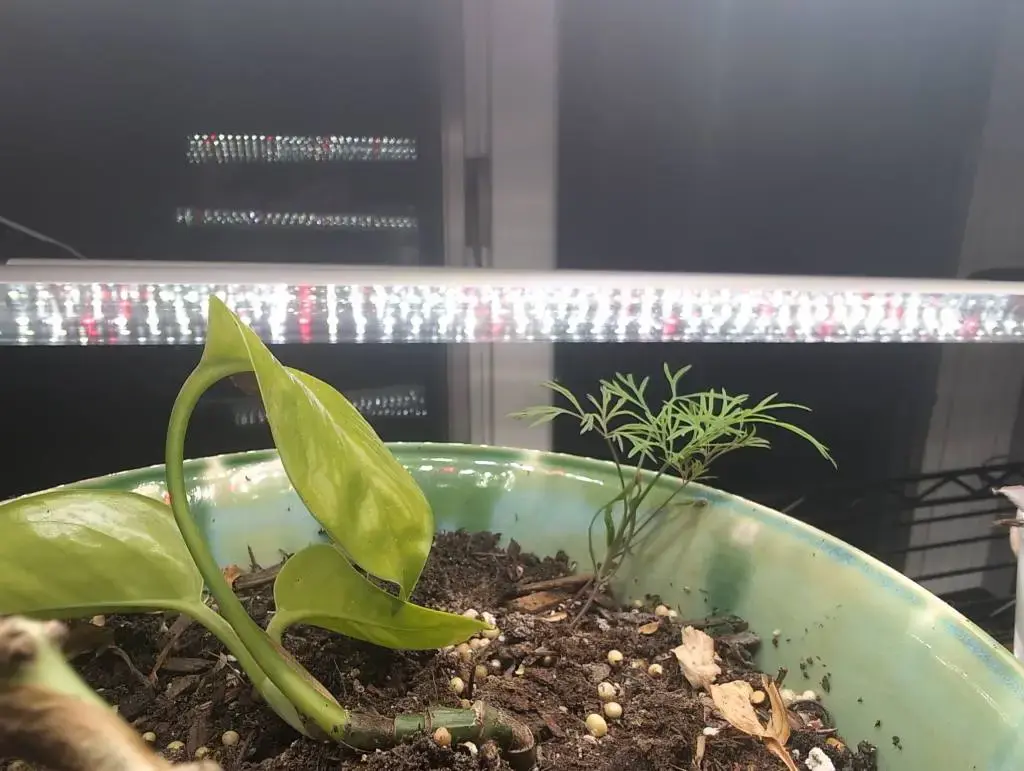
I’m going to check out your write up for sure! What you shared last year might have contributed to how weirdly enthusiastically I accepted the seeds.
Just got access to my community garden plot! So many weeds… starting to chip away at it but of course it’s going to rain all weekend. I also need to plan what I’m going to grow this year.
I’ve also got tons of acorns sprouting that I need to get into pots asap.
Sounds like you’ve got all the fixin’s for some anaerobic fertilizer!
What do you mean by this?
Short answer: you can decompose your weeds in water without oxygen and retain non-oxidized phytonutrient forms to feed your plot. Put a lid on the bucket (it’s stinky) and wait 3 or more weeks before distributing with water at 10 - 50:1 ratios.
Longer answer: in an oxygen rich environment, the nutrients held by the garden waste and weeds are acted upon by a certain set of decomposition organisms, resulting in oxidized forms of those nutrients, their base elements, or a compound resulting from those biological processes. Without that available oxygen, different organisms and processes take over and result in different forms of those nutrients. There is some oxidation occurring when you mix it for dilution or expose it to the air, but enough of that form of nutrient will become available to your plants and the subsoil community they support.
Why does that matter?
Soils are living entities teeming with absolute scads of life forms, and are in a state of constant change through processes like gas exchange, hydration, and the fluctuations of chemical signals from the plants and microbiology in the vicinity. When we fertilize, it’s in our interests to feed as many forms of our nutrients to our plants as we can responsibly manage, since that variety of nutrition will benefit the subsoil communities that are the engine of the soils we’re cultivating.
During periods of wet soils - whether due to a continued rain event or one big deluge that won’t drain away - there are functional anaerobes that will continue working to provide gas exchange and nutrient harvesting for our plants, since the aerobic microorganisms are either dormant or dying. Even when these events aren’t catastrophic, our plants can suffer from a lack of these services. It’s possible to inoculate your soil with some of these organisms by incorporating anaerobic liquid fertilizers you’ve made yourself from the weeds you’re pulling.
Since those weeds are often doing the work of sequestering scarce nutrients by drawing them from subsoils or by using overabundant ones to advance the succession of the plants, we can use their hard work (and sacrifice) to replenish those nutrients they’re accumulating to the benefit of other plants we’re intentionally growing. This is a hyper-localized fertilization method for the exact patch you’re growing in, as dictated by what the soil is expressing from its latent seed bank.
Howdy! It’s ~40s and wet here in the PNW (with the threat of snow!). There are leeks, chard, and herbs happily chugging along outside.
But the real fun is inside! Earlier this year I built a fun little grow cabinet for a jalepeno, some citrus, and lemongrass. I promptly spent several weeks fighting an aphid infestation.
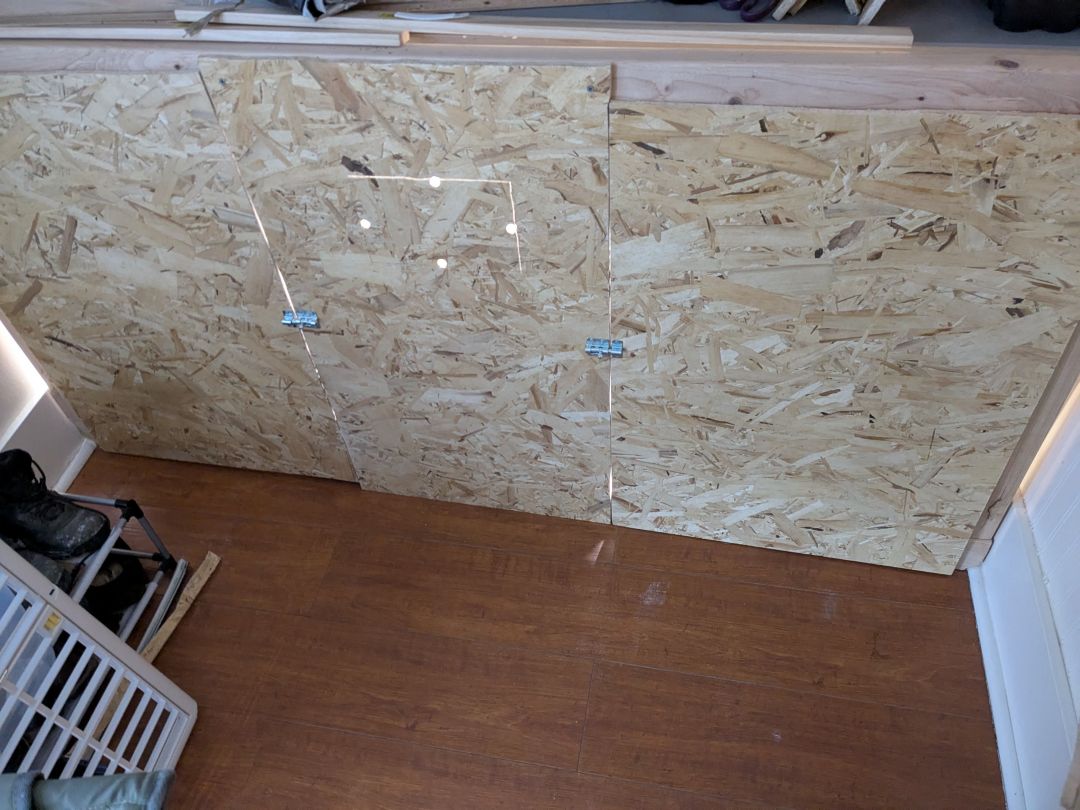
So now, I have happy little jalapenos growing, as well as some wee little satsumas.
And of course, several hundred LITTLE BABY PLANTS!
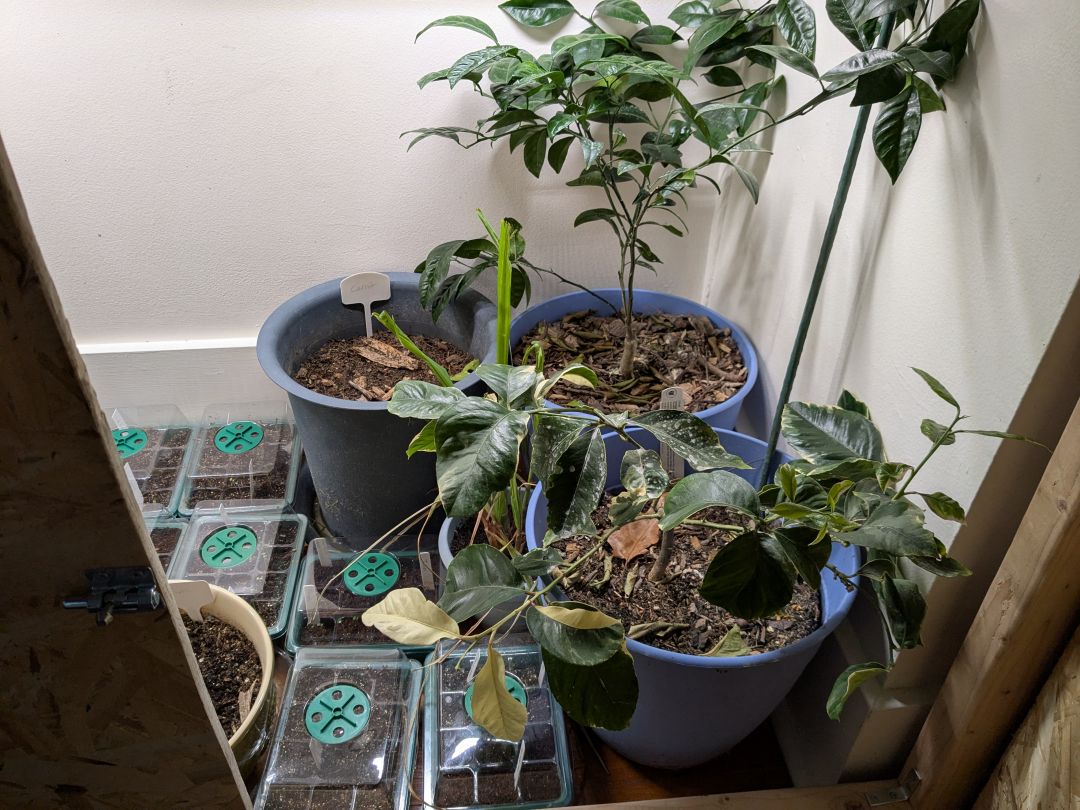

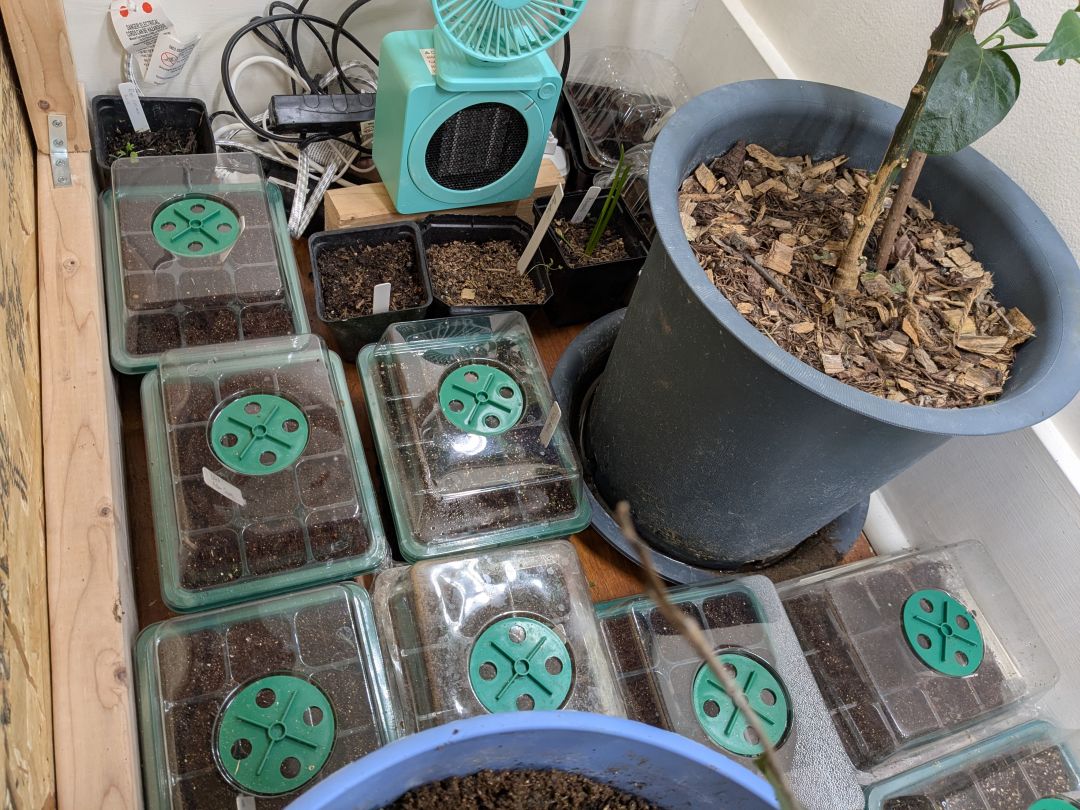
I’m getting all the early spring plants going that transplant well - lettuce, kale, arugula, you name it. I’m going to try and grow some carrots inside, we’ll see. Slugs destroyed all mine last year. Also, like 120 onions of different varieties. Geez!
I would love to grow some sumos in WA!
Ive been eco-sourcing some nikau, kowhai, kareao and puriri seeds to bring to our native plant nursery where I volunteer at. Im also going to try and grow some kareao in my room.
I love this with every fiber of my being, in part because I had to look up all of those plants! Can you tell us more about the native plant nursery you volunteer with, or how you go about locating and eco-sourcing the seeds?
Also how does a seed library work? is it where people bring there excess grown seeds to share with others, because if so that’s so cool, I wish we had a thing like that here
Thank you for your lovely reply. I’ll try and answer as best as I can.
I stumble across most seed’s while doing other things in the forest such as tramping or pest trapping. While the Kowhai seeds I grab from a beautiful old naturally bonsaid tree on an island I do conservation on.
The idea of eco-sourcing is that plants of the same species have regional variation which makes them better suited/more benificial for that region. So we want to plant planted with seed that came from a wild plant in the ecological region they are planted in. (Another benifit of wild plants is more genetic diversity).
The nursery is purely for conservation and is partnered with our department of conservation they sell plants at a price low enouph to buy the stuff to grow more plants and everyone there is a volenteer growing plants for fun (mostly lovely old people).
